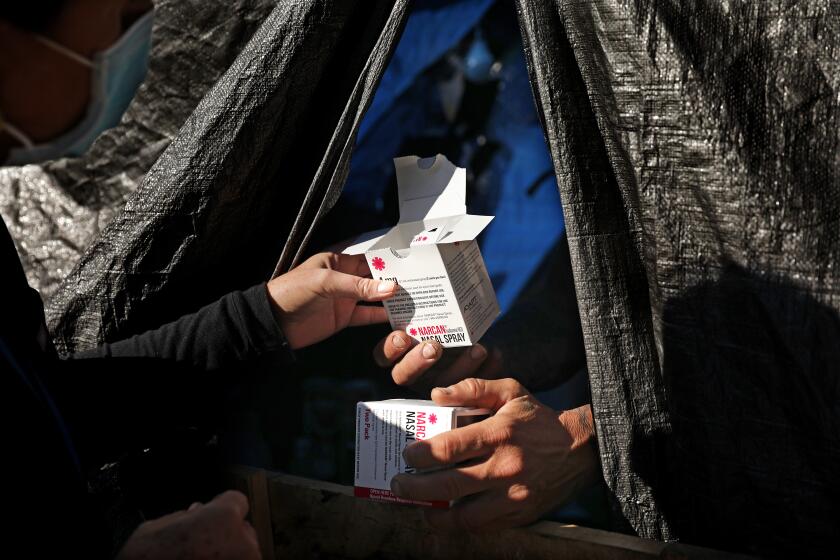Should the Hippocratic Oath include a pledge not to plagiarize?
Apparently, suspicion of wanna-be doctors is higher than we thought.
Last week, Booster Shots reported on a study that examined the degree to which candidates for ophthalmology residency programs fudged their resumes by exaggerating – or outright inventing – their role in medical research projects. It turned out that for one program in Little Rock, the rate of such “misrepresentations” (to put it generously) was 8.1%.
Similar studies examining the truthfulness of applicants to residency programs in fields including radiation oncology, orthopedics, emergency medicine, pediatrics, radiology, psychiatry and neurology found misrepresentation rates ranging from 1.8% all the way up to 100%.
This week, researchers from Brigham and Women’s Hospital, Massachusetts General Hospital and Harvard Medical School addressed a different sort of fraud – plagiarism. They wondered how often aspiring physicians copied the “personal statements” that are an influential part of the application for any residency program.
Personal statements are essentially essays in which applicants describe what led them to a career in medicine, why they want to pursue a particular specialty or anything else that could make them stand out. But just as high school and college students go online to copy other people’s term papers on “Heart of Darkness,” med students may be turning to the Internet to save themselves the trouble of writing their own personal statements.
And indeed, they are.
The researchers examined 4,975 personal statements submitted by applicants over two years to the five largest residency programs at the Brigham – internal medicine, anesthesiology, general surgery, obstetrics and gynecology, and emergency medicine. Those applications are a fair approximation of applications submitted all over the country, since 28% to 45% of all candidates for those five specialties applied for the Brigham’s prestigious training programs.
The researchers used a software program called Turnitin for Admissions to scan the personal statements and compare them to each other and to a database of essays from the Web and elsewhere. The program analyzes blocks of text about 40 characters long and churns out a score to reflect how similar it is to another essay.
It turned out that 5.2% of the personal statements got a score of at least 10 (on a scale of 0 to 100), which was judged to be the cut-off for plagiarism. (Actually, the researchers said they think many essays that scored in the high single digits were probably also plagiarised to some extent.)
To get an idea of what that score means, here’s an excerpt from a personal statement available on the Web:
“I have excellent listening skills and feel comfortable working and interacting with individuals from a wide range of social and cultural backgrounds.”
And here’s part of a personal statement submitted to the Brigham:
“I have excellent communicating skills and feel comfortable interacting and working with individuals from a wide range of social and cultural backgrounds.”
That particular personal statement, which had other passages that were suspiciously similar to essays in the database, got a rating of 9.
Who was likely to plagiarize? Personal statements with “evidence of plagiarism” were more likely to be from students who attended foreign medical schools or were non-U.S. citizens, the researchers found. Also, applicants who were older, spoke a foreign language, or had been through another residency program already were more likely to show signs of copying parts of their personal statements.
Applicants who were least likely to plagiarize included those who finished in the top 20% of their medical school class, had higher scores on the first part of their medical board exams, and had research or volunteer experience. But the study authors emphasized that “evidence of plagiarism was detected in essays from applicants of all specialities, from domestic and foreign medical schools, and of both sexes and among those with strong academic credentials.”
The finding that about one out of every 20 personal statements is plagiarised to some degree is “worrisome,” they wrote (although they allowed that it could simply reflect a high incidence of cryptomnesia, the technical term for unconscious copying). These unethical applicants are likely to have trouble during residency and may not turn out to be the best doctors.
The researchers were not able to tell whether any of the plagiarisers in this study wound up getting in to residency programs at the Brigham, since names were removed from the applications before the analysis.
The best way to combat the problem would be to set up a centralized system of essay-scanning to serve residency programs throughout the country, the authors wrote. Among its other advantages, “the mere knowledge that essays are being screened by plagiarism-detection software may substantially deter would-be plagiarizers,” they wrote.
The study appears in this week’s edition of Annals of Internal Medicine.
Back to Booster Shots blog.




